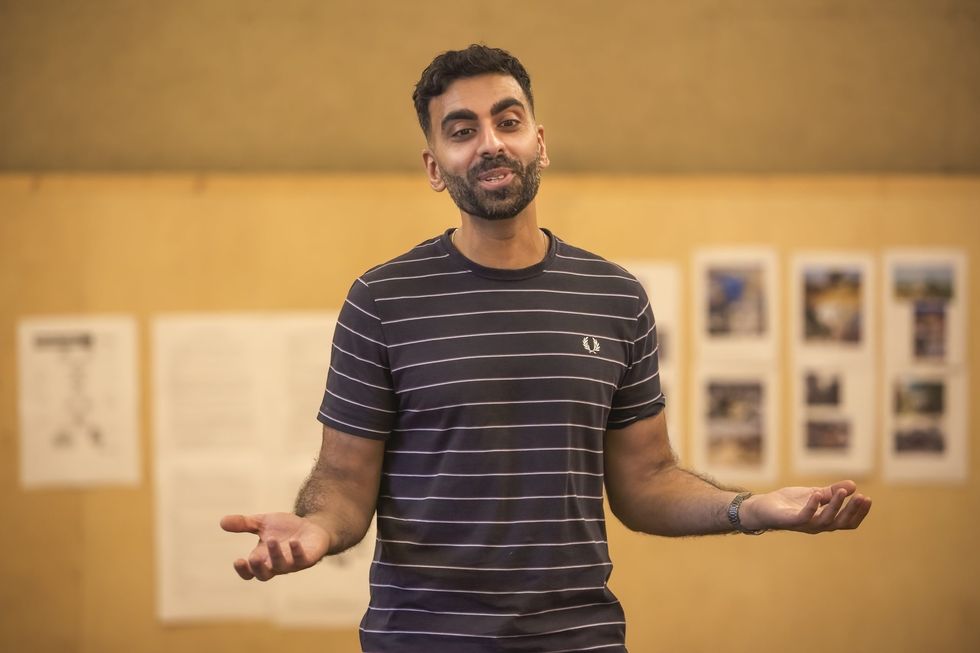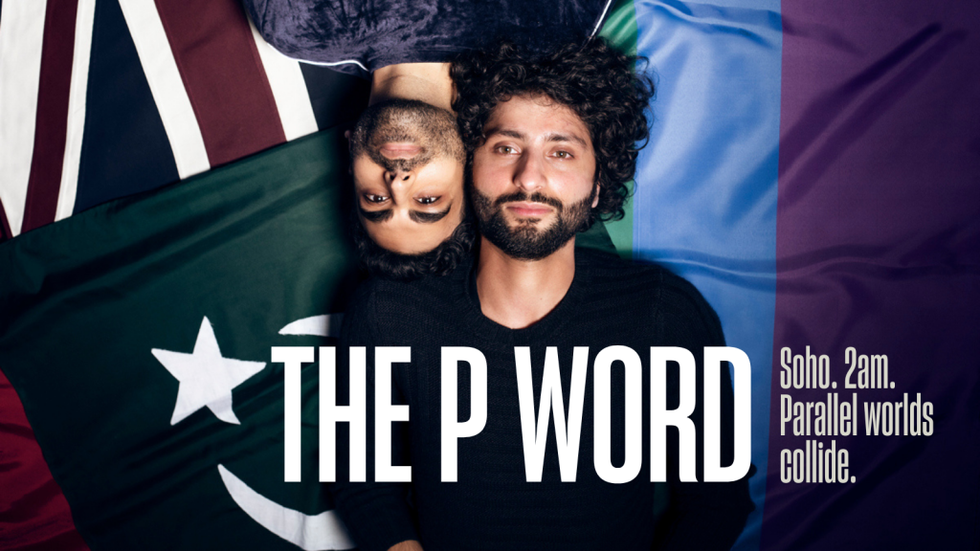EXPLORING the struggles of a gay Asian Muslim asylum seeker in modern Britain is the central theme in the Bush Theatre’s new work, The P Word, the playwright has said.
It charts the parallel lives of two gay Pakistani men – Zafar, who flees homophobic persecution in Pakistan to seek asylum in the UK; and Londoner Bilal (or Billy, as he prefers to be called), who is ground down by years of Grindr and the complexity of being a brown gay man.
Writer Waleed Akhtar, who also plays the character of Bilal, told Eastern Eye he wanted shed light on the persecution of Pakistani LGBTQ asylum seekers in the UK.
Akhtar is part of the Ice and Fire theatre group, and has worked on their project Actors for Human rights. Set up in 2006, it is a network of more than 700 professional UK actors drawing attention to rights concerns.
“I’m very passionate about asylum seekers. And working with them (through Ice and Fire), I came across a lot of stories of LGBTQ asylum seekers and what they have to go through and it was really shocking,” he said. “Just the figures around LGBTQ asylum seekers being refused the first time around; and it’s when they appeal they are allowed to stay – the rates are really high. And it sort of sprung from that idea. The story is tied to something that is very real.”
When writing the script, Akhtar teamed up with Micro Rainbow, which opened the first safe house in the UK dedicated solely to LGBTQ asylum seekers and refugees. Through this charity, he heard the testimonies of a number of LGBTQ asylum seekers from south Asia.
“There’s lots of stories, but sometimes people are afraid to give names just because it might affect their claim or they will be in such danger if they are sent back. So it’s difficult. But I’ve done a lot of research on the subject and try to make it as accurate and real as possible,” Akhtar told Eastern Eye.
He said he discovered LGBTQ asylum seekers from Pakistan – where same-sex sexual activity is illegal and carries a maximum penalty of life imprisonment – faced the most difficulty gaining asylum in the UK.
“The (LGBTQ applicants) most refused (asylum) are from Pakistan,” he said. “When it comes to countries like Afghanistan and Iran, I think it’s an easier process. Whereas if you’re an LGBTQ asylum seeker from Pakistan, there is this assumption that because you won’t be killed and you’ll ‘just’ be thrown into prison, that maybe it’s ok or safer.
“Through our research we learned it was a lot of Pakistani people who were sent back.”

Being Muslim and gay is still punishable by death in a number of countries around the world, such as Saudi Arabia, Iran, Afghanistan and Qatar.
Akhtar said, “Queer Muslims exist, so the play isn’t really debating that point. It is talking about the fact of ‘how do you live your life? And how do you negotiate both those things?’ Those conversations have happened quite a lot, so I’m hoping to kind of push that forward and move it in a different direction.
“When we meet Billy, he maybe feels he had to reject the kind of culture he grew up with, and embrace the queer community, because it was between choosing one or the other. And then hopefully, he kind of reconciled that a little bit more towards the end of the play.”
The piece also dwells on beauty standards, Akhtar said, adding “[It’s about] how we internalise our kind of proximity to whiteness, and also about owning our culture and all of our different identities”.

Akhtar said his intention was not to write a controversial play, but rather tell a human story.
“I wanted to write something that’s contemporary, that’s also funny as well as poignant. I want to challenge people’s assumptions. If anything, I’m trying to be political and look at the state of Britain at the moment.
“I would also like to say to audiences that it’s not a play that’s bashing Islam, it’s not written with that agenda in mind.”
Akhtar started his career as an actor, appearing in TV shows including Casualty, Holby City and Three Girls. He has also been part of the films Dustin Baby and Salmon Fishing in the Yemen alongside Ewan McGregor and Emily Blunt.
The Nottingham University graduate said he took up writing “as a way to take some control” of the stories being written about his community.
“As an actor, I was using only one part of my brain. But I thought, there a lot of things I want to say. That’s why I started writing – because I wanted to have more ownership over the stories being told. Sometimes as an actor, you don’t have that agency,” said Akhtar.
“It came out of like a slight tiredness of the work I was reading, and having our stories being written and told to us by others, and I was bored of that. So I decided to write from my own perspective.”
Akhtar, who has starred in plays including The Kite Runner and A Midsummer Night’s Dream, said there was a revolution on the horizon when it came to south Asian artists in theatre.
“I think we’re in a really great moment right now in terms of south Asian theatre. I just saw the amazing Chasing Hares at the Young Vic and there’s loads of other great plays on and loads of great playwrights. I’m really excited about what’s coming through,” said Akhtar.
“It feels like a real moment of really interesting work that’s hitting mainstream theatres from some really interesting south Asian creators.”







 Apsana Begum
Apsana Begum











